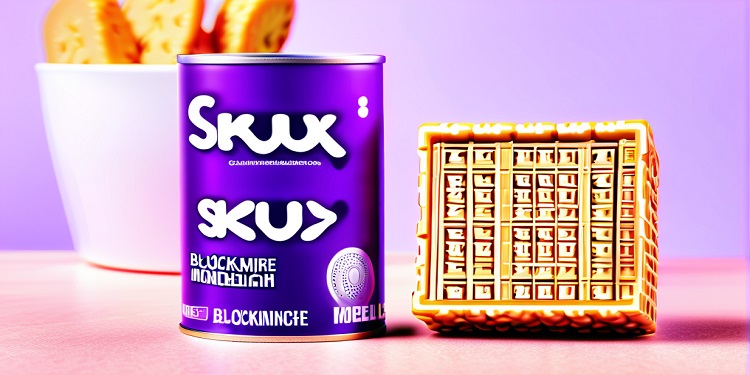SKUx, a digital payments firm, has successfully completed the initial phase of a blockchain-focused collaboration with consumer goods giant Mondelēz International. The partnership, which also involves Hedera, a leading open-source distributed ledger technology (DLT) network, aims to revolutionize the payment experience for customers by introducing a more efficient and transparent solution. Announced on October 16, this project is part of SKUx’s broader effort to enhance the customer experience in the fast-evolving digital payments landscape.
This collaboration seeks to transform the traditional ways of processing payments through coupons, paper checks, and vouchers by integrating SKUx’s near real-time digital payment solution. This advancement builds upon the existing customer service program offered by SKUx and Mondelēz, enabling consumers to enjoy faster and more streamlined payment processes. The integration of Hedera’s blockchain technology ensures that these transactions are securely mapped to the Hedera Network, creating an immutable and transparent record of each transaction.
Leveraging Blockchain for Greater Transparency and Efficiency
Mondelēz International, known for its popular brands like Ritz and Oreo, views digital transformation as essential in a market defined by rapidly changing consumer behaviors and increasingly intricate supply chains. The company’s global leader of digital strategy and blockchain, Xiang Xu, has highlighted the importance of adopting Web3 technologies to enhance customer satisfaction. Xu has underscored that the collaboration with SKUx and Hedera offers unparalleled transparency, showcasing blockchain’s potential to transform real-world payment systems.
By implementing blockchain, the partnership allows for more than just faster payments—it creates a transparent, traceable, and secure environment for processing consumer offers. The project demonstrates how Web3 innovations can reshape how businesses interact with their customers, focusing on transparency and efficiency in payments. Blockchain technology, in this case, does more than just facilitate transactions; it offers a solution that addresses the complexities of modern supply chains and volatile consumer behavior patterns by creating an immutable record of each transaction.
The Rise of Digital Payment Solutions in Consumer Goods
The partnership between SKUx and Mondelēz marks a significant milestone in the growing trend of digital payments within the consumer packaged goods (CPG) industry. Earlier this year, SKUx teamed up with Visa to accelerate digital transformation for select merchants and CPG companies using SKUx’s payment-based offer solutions. These collaborations reflect a shift away from outdated processes like checks and physical coupons towards real-time, mobile-based digital payments. The SKUx platform allows brands to engage directly with their customers through branded digital payments, offering an enhanced customer experience.
As digital payment platforms gain traction, Web3 technologies and blockchain continue to play a crucial role in their evolution. Blockchain’s ability to deliver speed, transparency, and cost-efficiency is attracting businesses looking to optimize their operations. The SKUx platform, which is being utilized by numerous top CPG brands, offers an ideal solution for modernizing the process of delivering promotional offers, rebates, and other payment solutions to consumers. By providing real-time payments directly to a mobile device, the platform enhances customer engagement and loyalty while also offering a seamless digital experience.
Blockchain’s Growing Role in Payments and Stablecoin Adoption
The collaboration between SKUx, Mondelēz, and Hedera takes place during a time when blockchain and stablecoin solutions are becoming increasingly important in the digital economy. According to PYMNTS, Web3 companies are rapidly building infrastructure that integrates blockchain technology with traditional financial systems, offering businesses new ways to manage payments. The adoption of stablecoins, in particular, has been rising due to their ability to address concerns around transparency and regulation, making them an appealing option for companies hesitant about the risks associated with cryptocurrencies.
In an interview with PYMNTS, Sheraz Shere, GM of payments and commerce at the Solana Foundation, noted that stablecoins offer several advantages, including speed, low cost, transparency, and the elimination of intermediaries. These features make stablecoins an attractive option for certain use cases, such as payouts, where speed and cost-efficiency are essential. This growing confidence in stablecoin solutions further underscores the relevance of blockchain technology in reshaping the financial landscape.
A Promising Future for Digital Payments
The partnership between SKUx and Mondelēz is a prime example of how blockchain technology is driving innovation in the payments sector. By collaborating with Hedera, the companies are able to offer a transparent and efficient payment process that enhances the consumer experience. As more businesses adopt Web3 technologies and blockchain solutions, the potential for further advancements in the digital payments space is immense. The success of this project illustrates how digital transformation can create more robust, secure, and consumer-friendly systems, paving the way for the future of digital payments in the CPG industry.
